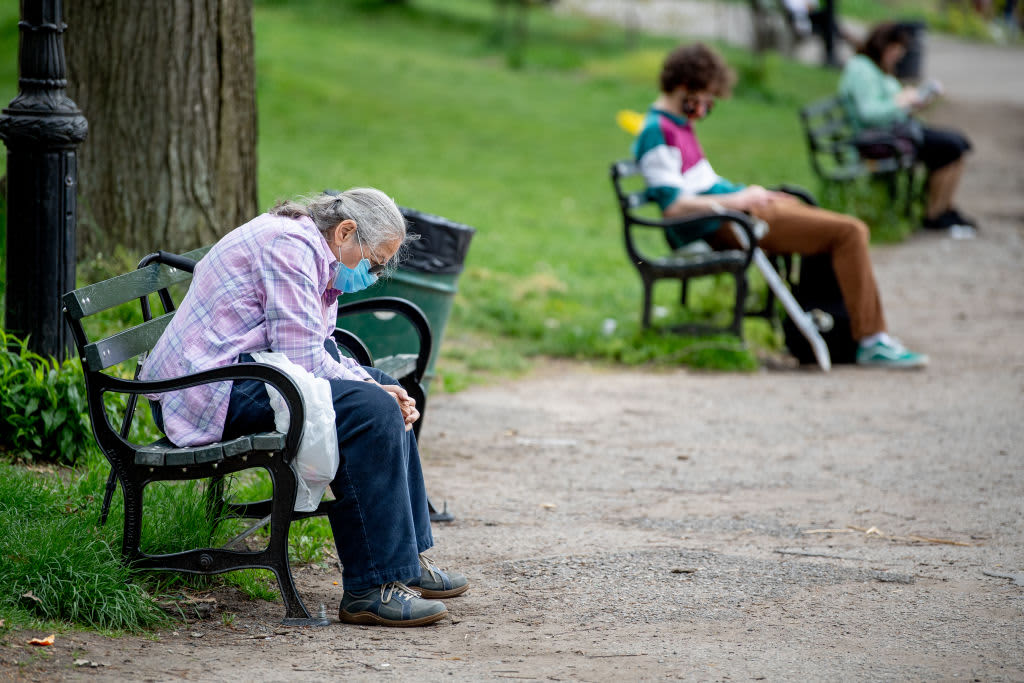Governments need to implement three things to break Covid-19's "chains of transmission" before reopening their economies, a global health expert and physician told CNBC.
Peter Drobac, director of the Skoll Centre for Social Entrepreneurship at Oxford University, warned on Tuesday that easing lockdowns without taking certain action would risk a second surge in coronavirus infections.
Speaking to CNBC's "Squawk Box Europe," Drobac — a physician who has also been an assistant professor at Harvard Medical School and co-founded the University of Global Health Equity in Rwanda — suggested three steps governments could take to minimize that risk.
"The way to interrupt (a second surge) is by testing, contact tracing and then being able to isolate and quarantine those who are infected and exposed to break those chains of transmission," he said. "If you don't have that infrastructure in place, you're taking a really significant risk."
According to Drobac, a lot of the best lessons on how to handle the pandemic had come from Asia.
He pointed to South Korea as an example, which has been widely hailed as a role model for successfully containing its outbreak by instituting widespread testing, intensive contact tracing and quarantine measures. The country, which is slowly reopening its economy, has recorded 10,804 confirmed cases of Covid-19 and 254 deaths from the virus to date, according to data from Johns Hopkins University.
Singapore could also be looked to as an Asian nation that had responded well to the outbreak, Drobac said, although he noted that the country had struggled to contain the virus within its migrant communities. Singapore has reported 19,410 cases of the coronavirus and 18 deaths, according to the Johns Hopkins data.
By comparison, the U.S. has recorded more than 1.1 million cases and almost 69,000 deaths, while the U.K. has reported 191,832 cases more than 32,000 fatalities.
"In Europe, some of the earliest lessons are coming from places like the Czech Republic, Austria and Norway, which had really good success in crushing the curve early and staving off the worst of things," he told CNBC. "So what we're seeing is a slightly different approach in lots of different countries that shows there's not an exact playbook for how exactly to open up."
Another hurdle in overcoming the coronavirus pandemic is a lack of cross-border cooperation, Drobac noted.
"Nationalism is not going to solve this problem for any country," he said. "The virus doesn't know or care about our borders or politics — so none of us are safe from the virus until all of us are. In the early days of the response, the very country-specific, inward-looking efforts and the competition for testing and PPE was really very concerning."
However, he said there had been some encouraging news more recently, such as the EU-led videoconference which saw world leaders and international organizations on Monday raise 7.4 billion euros ($8 billion) for global research on Covid-19.
"A number of G-20 countries and others coordinated investments in vaccines, in treatment, in testing — not just the development but also the fair distribution of those things," Drobac said. "It was a really important step, and we need to see more cooperation like that. It's worth noting that the U.S. was very visibly absent from that announcement."
Nationalist approaches to handling the coronavirus crisis have been subjected to criticism since the outbreak began.
Nobel Prize Laureate Jean Tirole told CNBC last month that globalism needed to be protected in order to mitigate the economic shock of the pandemic.
Meanwhile, Mark Malloch-Brown, senior advisor at Eurasia Group, told CNBC in April that the coronavirus crisis lacked a globally spearheaded strategy.
"There's an awful lot of global leaders that are still acting very selfishly and very nationally," he said at the time.


